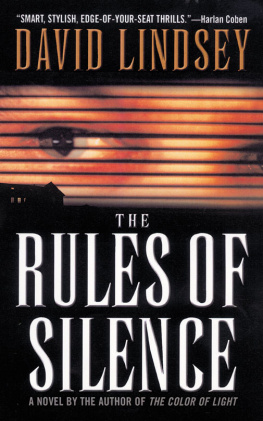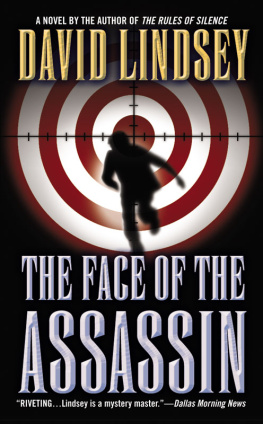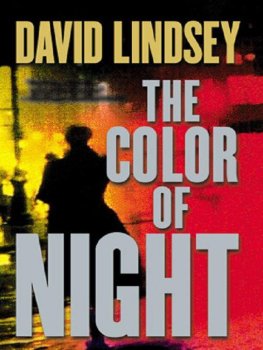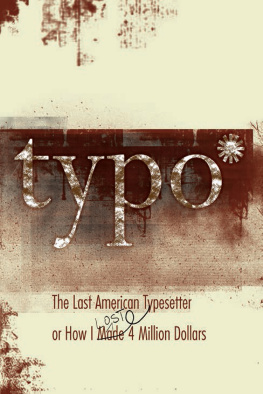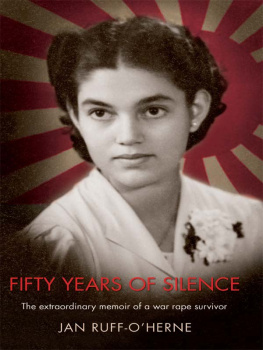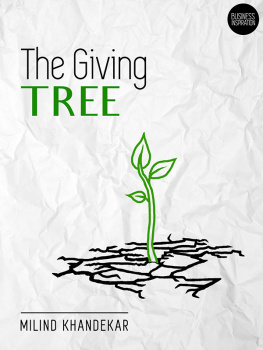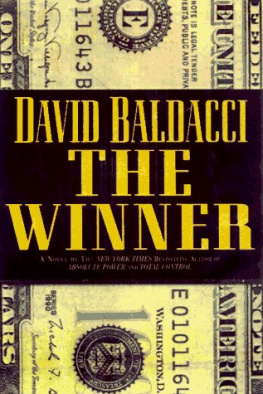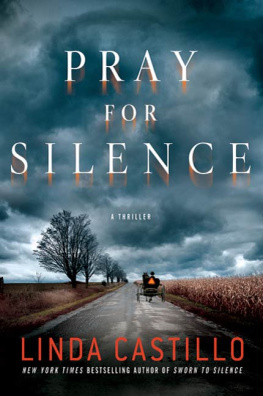This book is a work of fiction. Names, characters, places, and incidents are the product of the author's imagination or are used fictitiously. Any resemblance to actual events, locales, or persons, living or dead, is coincidental.
Copyright 2003 by David Lindsey All rights reserved.
Warner Books, Inc.
Hachette Book Group
237 Park Avenue
New York, NY 10017
Visit our Web site at www.HachetteBookGroup.com
The Warner Books name and logo are registered trademarks ofHachette Book Group
First eBook Edition: April 2003
ISBN: 978-0-446-54946-2
Contents
Also by David Lindsey
Animosity
The Color of Night
Requiem for a Glass Heart
An Absence of Light
Body of Truth
Mercy
In the Lake of the Moon
Spiral
Heat from Another Sun
A Cold Mind
Black Gold, Red Death
For Joyce, my constant shelter from the solitary storms of the imagination.
While every writer is ultimately responsible for what he has created, it requires a great deal of midwifery to turn a novelist's imaginings into tangible books, and to put those books into the hands of readers. I want to thank some of those who have nurtured me, and my writing, through the complicated process of publication.
Foremost among those to whom I am indebted is my agent, Aaron Priest. I first met Aaron in 1975 when I was in New York on business, and he was just starting his literary agency, operating out of a tiny office on East Fortieth Street. I hadn't yet begun writing, however, and it wasn't until 1982 that he sold two novels for me, beginning a partnership that now has lasted through two decades and twelve novels.
The literary agent toils at a mysterious alchemy, impossibly combining words and dollars in the ever-hopeful pursuit of forging the bright ore of a writing career that will serve to the mutual benefit of all the parties involved. It is an enigmatic profession involving a complex brew of relationships among author and agent and publisher and public.
Aaron, it was my good fortune to have stumbled into your office twenty-seven years ago. Of all the obvious benefits that have accrued to me from that encounter, there is one that supersedes them all: You have made it possible for me to have a career in the intimate company of the English language. I still find that extraordinary. I am unabashedly grateful to you for providing me the privilege of being a novelist.
Beyond that, the years themselves have burnished the friendship, through thick and thin, from Texas to Manhattan. Mil gracias, mi amigo.
Over the course of twelve novels just about everyone in Aaron's office has helped me along. My thanks to Molly Friedrich for stepping in when stepping in matters so much; to Lucy Childs who fields anxieties with such good-natured aplomb; to Frances Jalet-Miller whose special touch is not forgotten; and to Lisa Erbach-Vance who is the most efficient, dauntless, and gracious person I've ever worked with.
My thanks to Larry Kirshbaum and Maureen Mahon Egen who brought me to Warner Books three novels ago. It is no small thing to put faith in a writer, and then to ride out the ups and downs of his career. The kind of commitment that requires should not be overlooked in the scheme of things, and isn't.
Thanks to Jamie Raab for sweating out the proposals and deadlines and editing, and to Harvey-Jane Kowal and Sona Vogel for attending to the sea of details that have to mesh throughout the hundreds of pages of a book.
And a special expression of appreciation goes to editor Jessica Papin who relentlessly pursued the better novel inside the first draft of this book. Thanks, Jessica, for your generous and insightful guidance.
Benny Chalmers stared through the opened window of his pickup. He wore a soiled and sweat-stained khaki shirt with long sleeves, dirty jeans, and beat-to-hell cowboy boots with tops that reached nearly to his knees. He was red-faced from forty-one years in the searing border country sun, and his forehead was as white as a corpse where his Stetson had protected it.
It was four-thirty in the afternoon, and Chalmers was sitting in the middle of twenty-one million acres of rugged terrain known to ecologists as the South Texas plains and to everyone else as the Brush Country. They were fifty miles from anything other than an isolated ranch house every twenty or so miles. But they were only two hundred yards from Mexico. The sun was white. As far as you could see in any direction was an endless parched landscape of head-high thickets of cat claw and black brush interspersed with prickly pear flats and mesquite.
Chalmers was watching a rancher's vaqueros load 126 head of mixed-breed cattle into Chalmers's cattle truck. He had been hired to take them to another ranch near Bandera two hundred miles north. The cattle were being held in a sprawling maze of pens made of rusty oil rig drill pipe. A long iron-and-wood ramp ran from the pen's chute into the back of the trailer, a massive twelve-wheeler, triple-decker Wilson.
Fifty yards to Chalmers's left, a helicopter had just landed in a tornado of dust. Thecopter had disgorged three men wearing guns, boots, and the familiar deep green uniforms of the U.S. Border Patrol agents. They were interested in watching the vaqueros load the cattle, and they were interested in Chalmers's big rig.
Goddamn it, Chalmers muttered, squinting into the sun. The cattle were bawling and rocking the huge trailer as they clambered up the ramp and into the cavernous belly of their transportation. The cattle that were still in the pens milled and shuffled around in the hot dirt, kicking up dust that hung heavily above the whole operation in a rusty haze.
Chalmers had trucked cattle for border ranchers for twenty-two years. He knew more backcountry roads through the remote border ranches from El Paso to Brownsville than any man alive. And he knew about the hidden airstrips, too, and about the stepped-up Border Patrol activity because of the increase in smuggling of drugs and humans. He also knew that the odds were getting shorter against him.
He watched the three Border Patrol agents huddled at the rear of the trailer, looking in three different directions from behind their sunglasses. They were talking among themselves without looking at one another, the dust from the loading operation drifting over them and sticking to the sweat that stained their dark uniforms.
Then the agents disappeared around the side of the sixty-five-foot-long truck and trailer, and when they emerged from behind the cab of the red Mack tractor, they looked toward Chalmers and waved. He waved back, sticking his beefy arm out the pickup window.
Adios, boys, he said under his breath. He turned back and looked out the windshield again and stared at the rusty fog and the cattle and the vaqueros. But he didn't relax until he heard the chopper's engine start, its low whine cranking up slowly, revving to lift.
He wiped his forehead on the sleeve of his shirt.
Chalmers smuggled people, but his operation was more than just a little special. To frustrate the noses of the Border Patrol dogs, he built two cubicles in the curved top of his trailer right in the middle of a big bunch of stinking, shitting cattle. The cubicles were twenty-four inches high (a little more than the thickness of a man lying flat on his back), sixty-two inches long, and twenty-four inches wide. He piped air-conditioning from the cab into the cubicles and put long, narrow water tanks in there with hoses to drink from. A man could live three days in there easy and hardly feel it.
Two people only. Delivery guaranteed. But the fee was high. And Chalmers knew damn well what that meant. Whoever came to him willing to pay his price had to have something more waiting for him in the States than working on a framing crew or wiping tables in a fast-food joint. This was elite human smuggling he was offering here.
Next page
